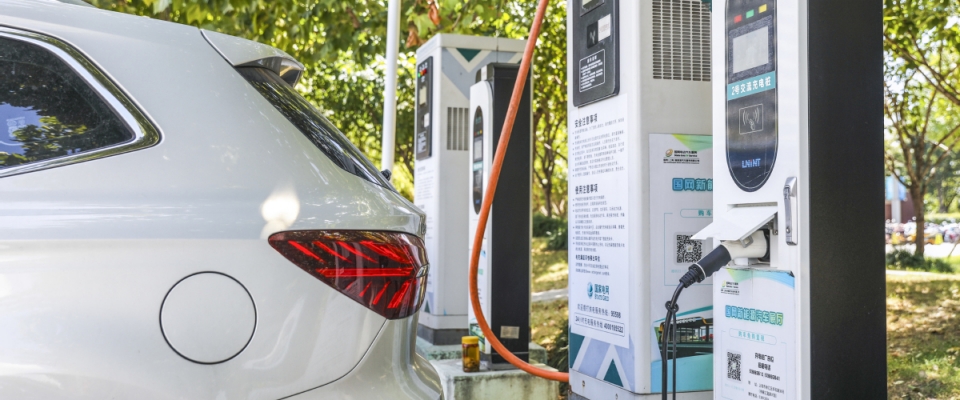Ministry encourages mergers among NEV companies
Currently there are many NEV makers, and most are scattered with small status. The ministry encourages enterprises to have mergers and reorganizations to become stronger and bigger.
Ministry encourages mergers among NEV companies
The Ministry of Industry and Information Technology, China’s top industry regulator, said on Monday it encourages mergers and reorganizations in the new energy vehicle sector, as the number of NEV companies in the nation is now too large.
Xiao Yaqing, minister of industry and information technology, said currently there are many NEV makers, and most are scattered with small status.
The ministry encourages enterprises to have mergers and reorganizations to become stronger and bigger, Xiao said.
Currently, all parties are enthusiastic about the development of NEVs and have greatly promoted the development of the industry. But the sector is very technology-heavy, and resources should be market-oriented as much as possible to avoid dispersion, Xiao added.
Auto sector helping with country’s plan to curb carbon emissions
The auto industry is expected to help China attain its green commitment of achieving peak carbon dioxide emissions by 2030 and carbon neutrality by 2060, officials said at the 2021 International Forum (TEDA) on the Chinese Automotive Industry Development on Saturday.
Xie Zhenhua, China’s special envoy for climate change affairs, said China plans to complete peak carbon emission to carbon neutrality in 30 years, the shortest period worldwide. The European Union plans to achieve it in around 70 years and the United States in 45 years.
In China, about 280 million vehicles were on the roads by the end of 2020, ranking first in the world. But car ownership per thousand people is below the world average.
The demands of vehicles will grow while the fuel consumption and emissions from traditional fuel-powered cars will be one of the challenges ahead for reducing carbon emissions. New energy vehicles are key to the transformation of the automobile industry and reducing carbon emissions.
Vehicle sales are expected to reach 16 million units in the first eight months this year, up about 10 percent year-on-year. Among them, NEV sales will reach more than 1.7 million units, two times more than the same period last year. Experts estimate the NEV market penetration rate will reach more than 10 percent by the end of August.
Xin Guobin, vice-minister of the Ministry of Industry and Information Technology, said at the forum that the industry still faces many challenges, such as the high cost of NEVs, lack of security and convenience, as well as restricted power battery recycling channels.
The shortage of auto chips and components supply caused by the uncontrolled spread of the COVID-19 virus overseas has affected China’s vehicle production and sales. The sales have shown a year-on-year monthly decrease for four months in a row.
The goal of carbon peak and carbon neutrality relies on the entire industry chain to promote the integrated development of low-carbon industries, products, transportation and energy, Xin said.
Song Yingjie, a senior Ministry of Commerce official, said that the ministry will continue to promote the consumption of NEVs while improving NEV scrapping systems to enhance the development of the entire industrial chain.
As the main body of the industry, carmakers must shift their focus to NEVs and make efforts to reduce carbon emissions.
Zhu Yanfeng, chairman of Dongfeng Motor, said achieving carbon peak and carbon neutrality is a long-term systematic project. Carmakers should fulfill their responsibilities in green and low-carbon development while also promoting the development of NEVs.
The carmaker’s NEV brand Voyah is delivering the first model Free SUV to customers. Dongfeng will accelerate the development of NEVs, including electric, plug-in hybrid and hydrogen vehicles, while also producing all electric versions of new passenger vehicle models by 2024, Zhu said.
Its annual NEV sales are expected to reach 1 million units by 2025.
Feng Xingya, general manager of GAC Group, said the emission of the automobile industry covers the entire lifecycle of vehicles, including raw materials, production, use and recycling.
Carmakers should focus on every aspect and cooperate with upstream and downstream entities to achieve green and low-carbon of automobile industry, Feng said.
GAC has built a batch of high efficiency and low emission plants, including the GAC Toyota’s zero wastewater discharge factory in Guangzhou, Guangdong province and the photovoltaic solar intelligent factory in Yichang, Hubei province.
The carmaker will partner with the China Emissions Exchange to promote carbon trading and green low-carbon mobility, Feng said.
About E. J. McKay
E.J. McKay is a Shanghai-headquartered investment bank with a special focus on mergers & acquisitions. We are one of the most long standing independent investment banks in China, with core business of mergers & acquisitions and financing advisory.


